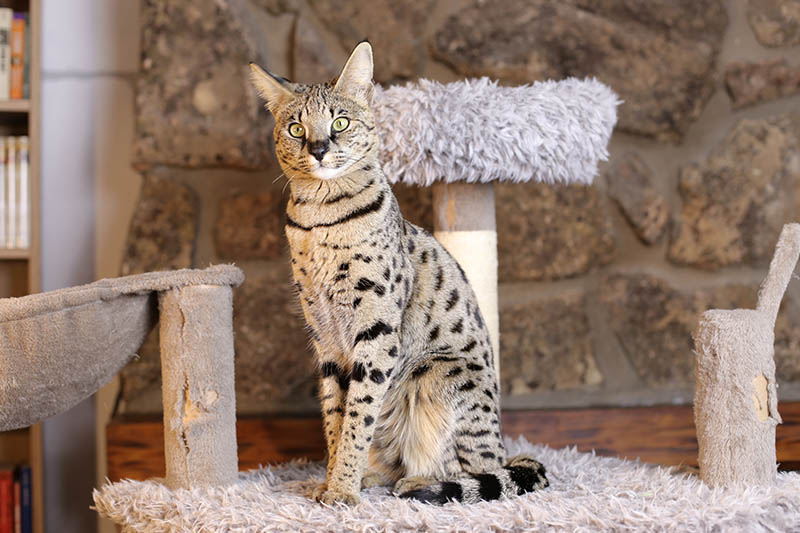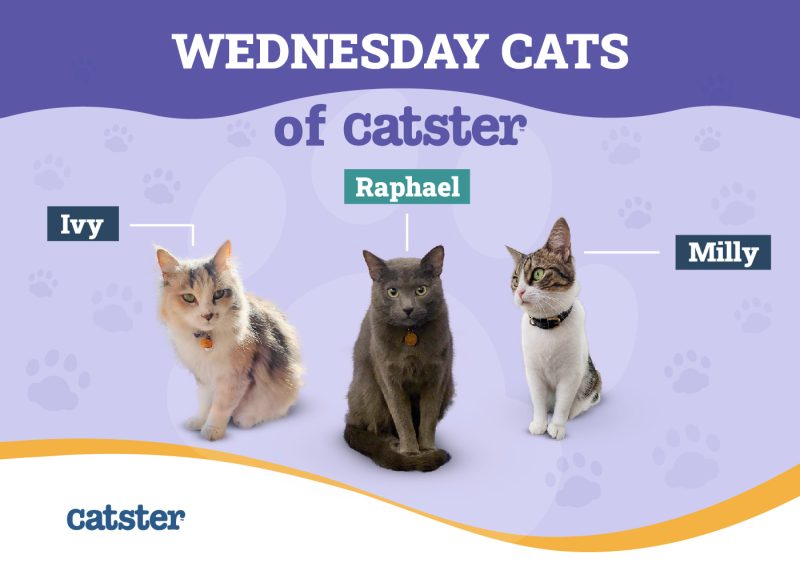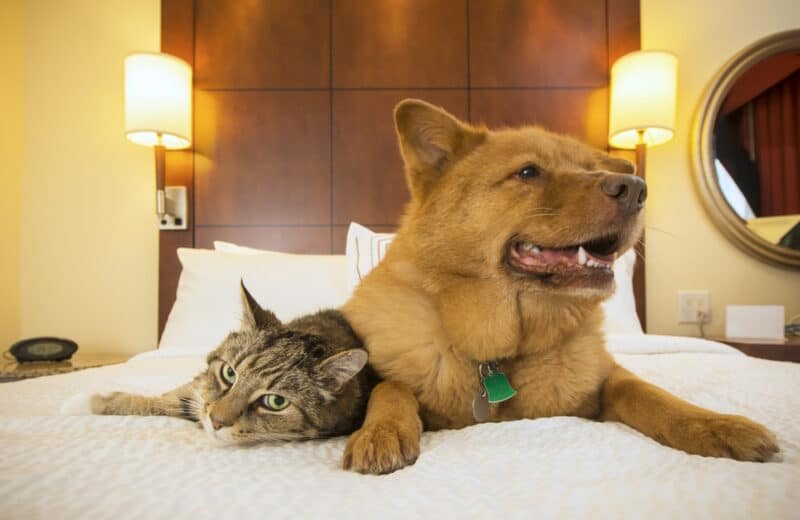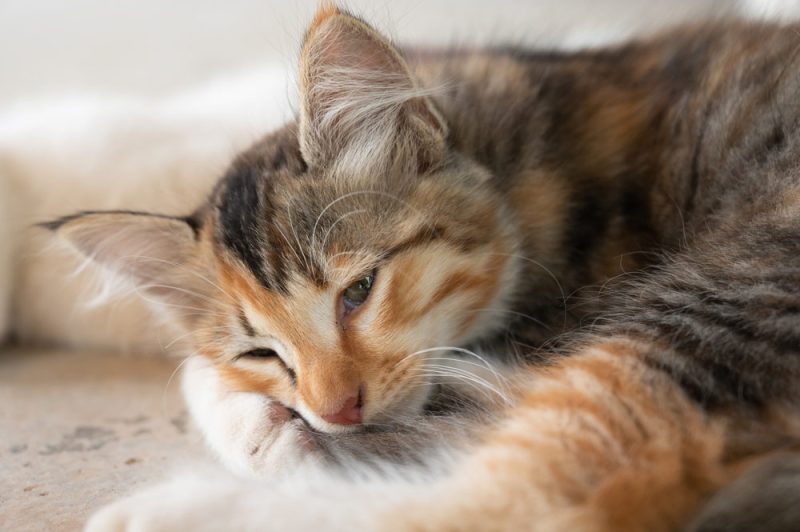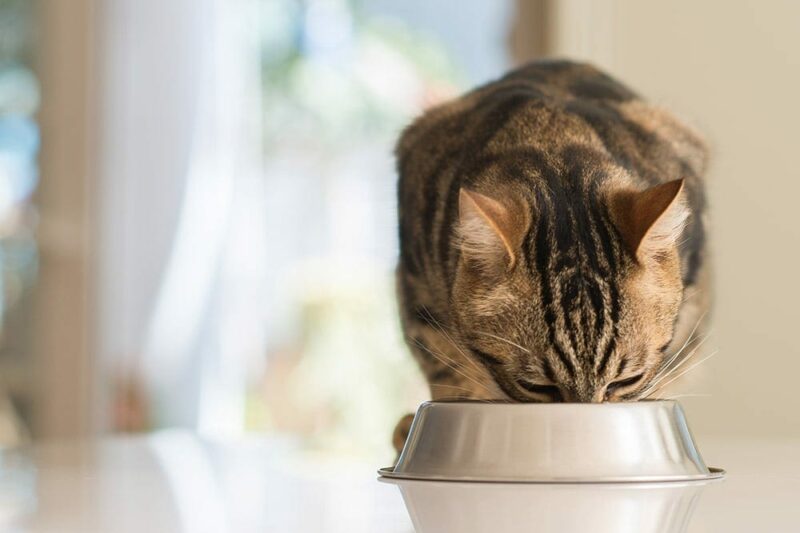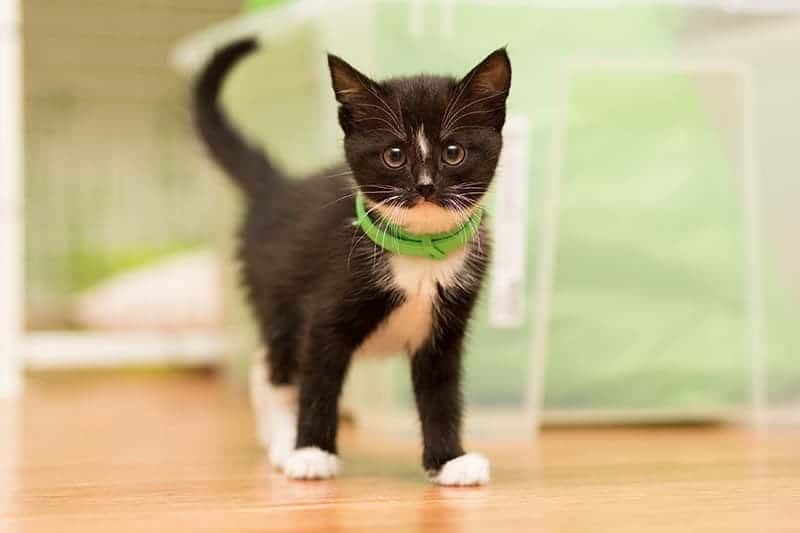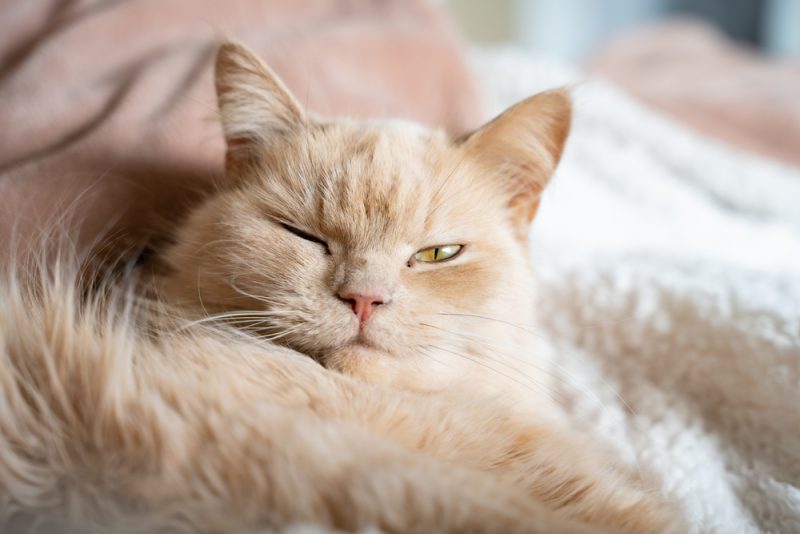Artichokes are delicious vegetables that can be savored as treats. There are many ways that you can enjoy artichokes, and they also happen to have nutritional benefits. If you want to share something you enjoy with your beloved cat, you might wonder if it’s safe to give your cat a piece of your artichoke.
We have good news and bad news: Artichokes are not toxic or harmful to cats, but we don’t recommend feeding them to your cat. Read on to learn why!

A Little Info About Artichokes
Artichokes are vegetables and a species of the thistle family. They are originally from the Mediterranean and have been used for natural remedies and nutritional benefits for centuries.
They are low in fat but high in fiber and full of phosphorus, folate, magnesium, and vitamin C, in addition to other vitamins, minerals, and antioxidants. Artichokes have been known to:
- Improve cholesterol
- Help lower blood pressure
- Improve liver health
- Help with IBS
- Have anticancer properties
- Lower blood sugar
- Improve digestion
So, with all these benefits seen in humans, why aren’t artichokes recommended for cats?
Can Cats Eat Artichokes?
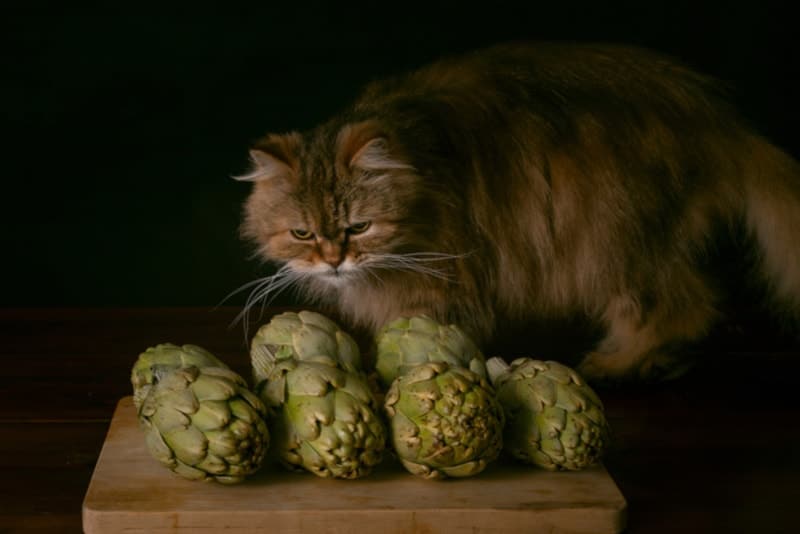
Artichokes are not toxic to cats, but the issue is that felines are obligate carnivores. They must eat meat in order to thrive and survive. In fact, a minimum of their diet should be 70% meat. All cats have difficulty digesting plant material and don’t derive enough nutrients from it.
That said, if a cat eats a piece of artichoke, the primary concern would be stomach upset and possibly lead to:
- Diarrhea
- Nausea
- Vomiting
- Lack of appetite
- Abdominal pain
The more they eat, the worse the stomach upset might get. Still, many cats aren’t likely to be all that interested in artichokes, anyway.

How Should You Give Artichokes to Your Cat?
Some cats might not have a problem after eating a bit of artichoke, so if your cat seems insistent, you can try it. The artichoke must be washed and cooked via methods like steaming, boiling, baking, or grilling. It must be cooked plain, without any seasonings or oils. Certain seasonings, particularly garlic and onions, are quite toxic for cats (including garlic salt and powder, shallots, and chives).
You should only feed your cat the heart and avoid everything on the top of the artichoke, like the tough leaves. You must also avoid products made with artichokes for humans, such as canned artichokes, marinated artichoke hearts, fried artichokes, and artichoke dips. These contain ingredients like garlic and onions, along with added fats, which are also not good for cats.
When you give an artichoke to your cat, only provide them with the smallest piece. The same can be said for any new food introduced to a cat’s diet, which is something that should always be discussed with a veterinarian.
Need veterinary advice but can't get to the clinic? Catster recommends PangoVet, our online veterinary service. Talk to a vet online and get the answers and advice you need for your cat without having to leave your living room — all at an affordable price!

Are There Other Risks of Artichokes for Cats?
Uncooked artichokes are harder for cats to digest than cooked ones, and there’s always the risk of chemicals and pesticides present on the surface. Therefore, cooked (steamed) and washed is the way to go. However, in general, cats don’t need or want artichokes in their diet.
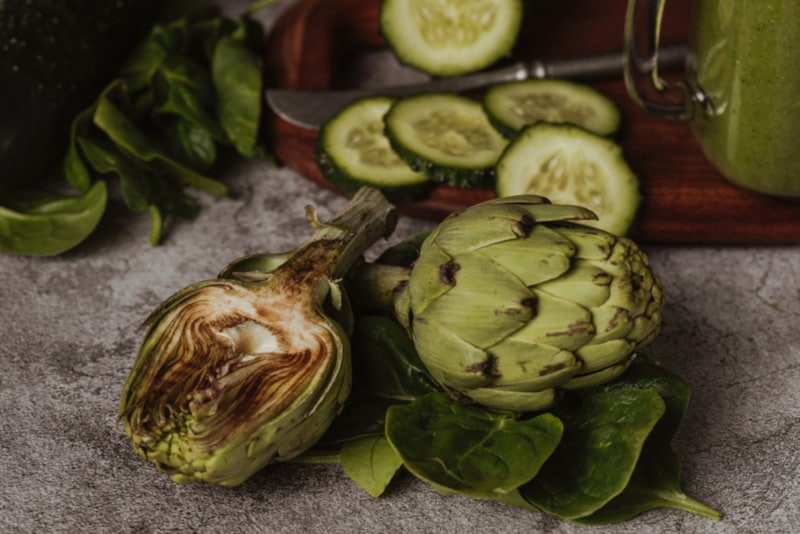

What Fruits and Vegetables Should Cats Avoid?
While cats should predominantly eat meat, anyway, you should know that there are several fruits and vegetables that you should never feed your cat when you’re considering adding new things to their diet.
- Grapes and raisins: These can cause serious digestive problems and acute kidney failure.
- Citrus fruits: Oranges, lemons, and limes can cause digestive upset, and the oils can be toxic.
- Chives
- Garlic
- Green tomatoes
- Leeks
- Onions
- Rhubarb
- Wild mushrooms
- Any seeds, roots, pits, rinds, and stems

Conclusion
In the long run, your cat might be more interested in batting an artichoke around on the floor rather than eating it. Regardless, it’s essential that you stick to your cat’s usual diet and don’t worry about giving them any vegetables. They aren’t necessary because your cat should have all their nutritional needs met with a balanced diet formulated for cats.
If your cat ate a piece of artichoke because they took it off your plate when you were distracted, they will likely be fine, but keep an eye on them for about 24 hours. As long as there are no signs of distress, everything is fine, but see a vet if you’re concerned. You should also talk to your vet if you are ever considering adding something new to your cat’s diet, particularly if your cat already suffers from allergies or a sensitive stomach—after all, you want your cat to remain healthy and happy.
Featured Image Credit: Binh Thanh Bui, Shutterstock






